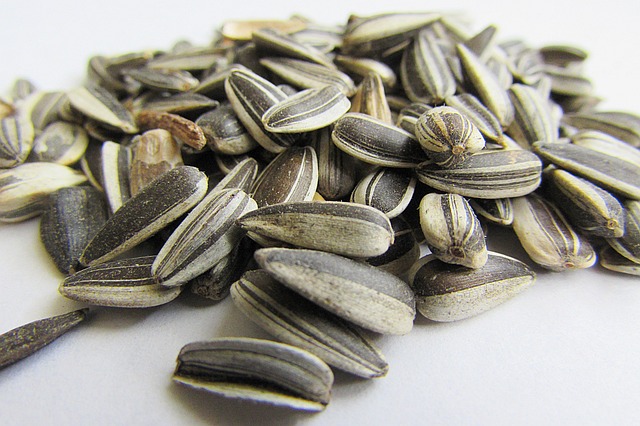
Sunflower Seed - 1206
Sunflower Seeds: A Nutritious Gem from India
Sunflower seeds, derived from the sunflower plant (Helianthus annuus), are a powerhouse of nutrition and an important agricultural product in India. Known for their mild, nutty flavor and versatile uses, these seeds are gaining popularity globally. This article explores the history, varieties, quality, and global appeal of sunflower seeds from an Indian exporter’s perspective, highlighting their significance in the agricultural export market.
Historical Significance: From the Americas to India
Early Origins
Sunflower seeds have a rich history that dates back to ancient civilizations in the Americas. Native to North America, sunflowers were cultivated by indigenous peoples for their seeds, which were used as a food source and for oil extraction.
- Introduction to India: The cultivation of sunflower seeds was introduced to India relatively recently, in the late 20th century. The adaptability of the sunflower plant to various climates and soils has made it a successful crop in India.
- Cultural Impact: While not traditionally part of Indian cuisine, sunflower seeds have been embraced for their nutritional benefits and are increasingly used in a variety of culinary applications.
Varieties of Sunflower Seeds
India produces several varieties of sunflower seeds, each with unique characteristics and uses.
Oilseed Sunflower Seeds
- Characteristics: These seeds are smaller, black, and have a higher oil content. They are primarily used for extracting sunflower oil, which is a popular cooking oil.
- Uses: Sunflower oil is used for frying, sautéing, and in salad dressings. The oil is valued for its light flavor and health benefits.
Non-Oilseed Sunflower Seeds
- Characteristics: These seeds are larger, striped, and have a lower oil content. They are commonly consumed as a snack or used as an ingredient in various food products.
- Uses: Non-oilseed sunflower seeds are roasted, salted, or flavored and sold as snacks. They are also used in baking, granola bars, salads, and as a topping for various dishes.
Quality of Sunflower Seeds: Ensuring Excellence
Maintaining the quality of sunflower seeds is crucial for meeting international standards and consumer expectations.
Factors Influencing Quality
- Soil and Climate: The quality of sunflower seeds is significantly influenced by the soil and climate in which they are grown. Rich, well-drained soil and adequate sunlight yield high-quality seeds.
- Harvesting Techniques: Proper harvesting techniques ensure that the seeds are collected at the right maturity stage, preserving their nutritional content and flavor.
- Processing Methods: Cleaning, drying, and sorting the seeds to remove impurities and ensure uniform size and color are essential steps in maintaining quality.
Quality Control Measures
- Testing and Certification: Regular testing for contaminants, such as aflatoxins, and adherence to food safety standards are essential. Certifications like ISO, HACCP, and organic certifications enhance the credibility and marketability of sunflower seeds.
- Packaging and Storage: Proper packaging in airtight containers protects the seeds from moisture and pests. Storing the seeds in a cool, dark place extends their shelf life and preserves their quality.
Nutritional and Health Benefits: A Powerhouse of Goodness
Sunflower seeds are not only a culinary delight but also offer several health benefits.
- Rich in Nutrients: Sunflower seeds are a good source of essential nutrients, including protein, healthy fats, fiber, vitamins E and B, and minerals such as magnesium and selenium.
- Heart Health: The seeds contain unsaturated fats, particularly linoleic acid, which can help lower bad cholesterol levels and support cardiovascular health.
- Antioxidant Properties: The seeds are rich in antioxidants, such as vitamin E, which help protect the body from oxidative stress and inflammation.
- Digestive Health: High fiber content in sunflower seeds aids in digestion and promotes gut health.
- Skin and Hair Health: The nutrients in sunflower seeds, including vitamin E and selenium, support healthy skin and hair.
